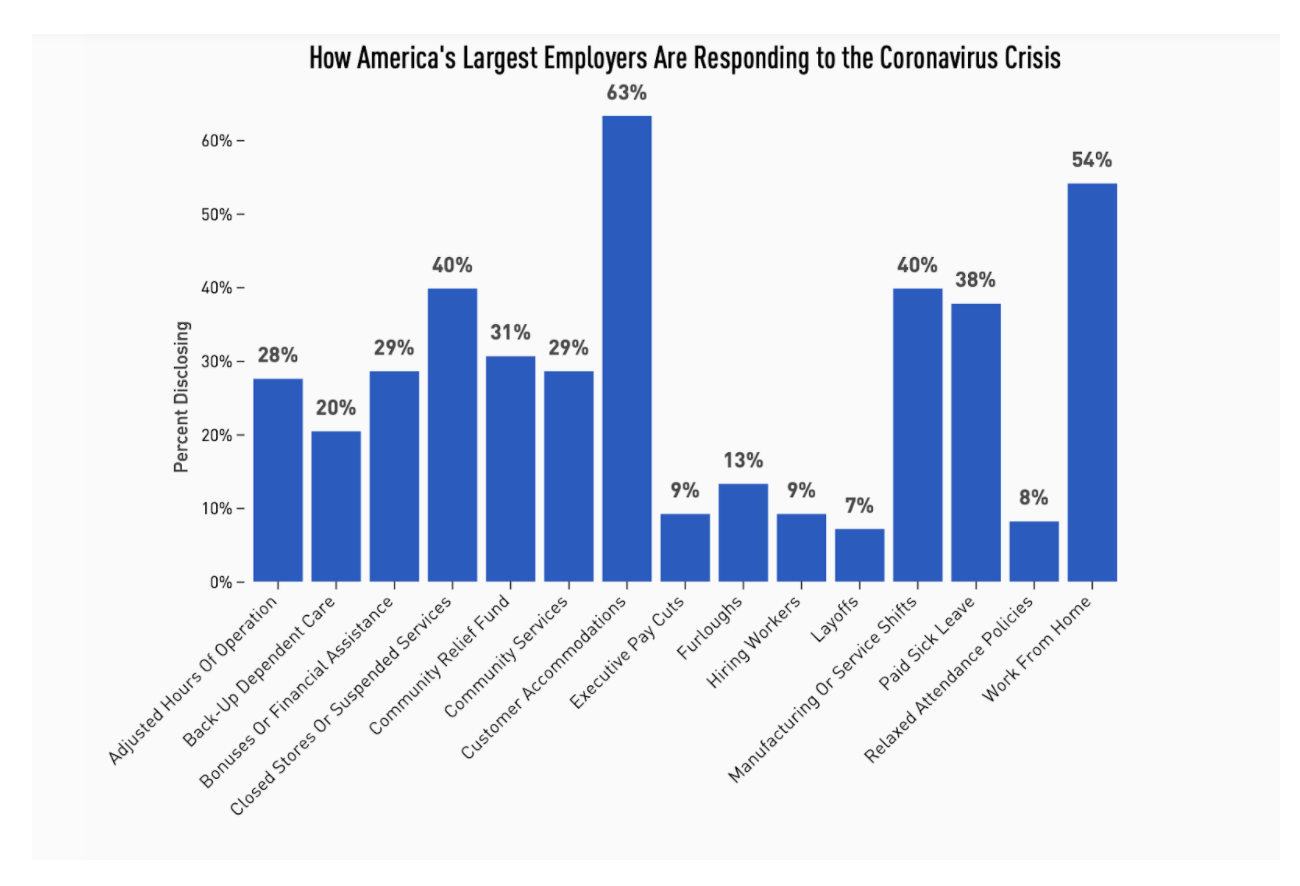In the time of coronavirus, companies will be closely scrutinized for how they treat their workers, and it’s the first time in recent history that American capitalism will be getting a blanket wakeup call: Starting now, it’s all about reputation. In fact, what is clear to many but still elusive to some, has prompted billionaire entrepreneur Mark Cuban to advise U.S. companies to go over and above to protect their workers during the pandemic. How companies treat their workers now will define their brand for decades, he said.
Millions of Americans already have lost their jobs due to the coronavirus crisis and the worst of the damage is yet to come, with some predicting that 67 million jobs are at high risk of unemployment.
The number of Americans applying for unemployment benefits amid the pandemic has doubled in a week to a record of 6.65 million, while the Washington Post reports that 10 million Americans applied for unemployment benefits in March alone.
So, this is where we separate the wheat from the chaff in a time of global crisis, when everyone is expected to pull together for the greater good.
It’s wise to heed Cuban’s advice when he says that the younger generation of consumers are paying very close attention to how companies are behaving during the pandemic stressing that large companies need to prioritize their employees during this difficult time.
“If you get branded as a company that acted in bad faith, laid off all your employees, or really cut back and you took a bonus or whatever, you’re going to get crushed and your brand is going to go straight into the toilet,” Cuban said.
The Anecdotal Report Card
As the situation is changing rapidly, Just Capital has created a COVID-19 Corporate Response Tracker which covers choices major U.S. companies are making during the coronavirus pandemic, and how they’re making them.

(Click to enlarge)
Source: JustCapital
The tracker is focused on the 100 largest public employers in the U.S and measures various dimensions of company response, from the expansion of paid sick leave and work-from-home policies and layoffs to customer accommodations and community relief funds.
“A”
Outdoor gear company Patagonia has promised to pay its employees while it shutters all stores and offices in response to the COVID-19 pandemic.
Many other retail chains, including Apple, Warby Parker and Urban Outfitters, are choosing to do the same and pay their employees.
Target, UPS, Home Depot, Kroger, Walmart, Amazon, Lowes, CVS, AT&T, Dollar Tree and Starbucks--among others--are all offering workers paid sick leave.
“C”
One favorite millennial stock that’s getting a lot of media attention--both positive and negative--is Amazon (NYSE:AMZN). In the past few days, media reports are focusing on the fate of a single Amazon warehouse employee who helped organize a worker walkout earlier this week.
Related: The Surprising Businesses Deemed “Essential” During The Coronavirus Lockdown
A group of warehouse workers walked off their jobs in Staten Island to demand that the company close the facility following several confirmed cases of the coronavirus among staff. Later that day, the company fired one of the organizers, saying he violated quarantine and safety measures. The incident has even prompted New York City Mayor Bill de Blasio to order the city's human rights commissioner to investigate Amazon over the firing.
“E”
There are many failures, too, though, with plenty of companies firing workers and freezing their positions with unpaid sick leave, while still others are lobbying incessantly and dubiously to be labeled as “essential business” to make their employees return to work despite the risk.
In an internal Hobby Lobby memo obtained by Business Insider, the company told managers that sick employees must use personal paid time off and vacation pay or take an "unpaid leave of absence until further notice."
According to Business Insider, Hobby Lobby founder David Green allegedly told employees that staying open was a message from God.
At Joann Fabrics, its CEO claimed that major hospitals had asked the company for help with materials for masks and gowns, which they denied.
At another major craft store, Michaels, workers were told they were "essential" to serving the public looking to take their minds off a stressful reality.
Menards is also getting a failing grade on this report card. In Michigan, it’s even been officially warned by the Attorney General to cease opportunistic practices during coronavirus--and it’s already the company’s second warning.
“The current climate should not be viewed through the lens of business opportunism where dollars drive decisions over the good of the public’s health,” Michigan Attorney General Dana Nessel said in a news release. Dana is taking issue with Menards’ marketing practices that are designed to bring large numbers of people to its stores for non-emergency purposes.
And prior to this, on March 17th, Menards was accused of price gouging on face masks and bleach by the Michigan Attorney General.
By Michael Kern for Safehaven.com
More Top Reads From Safehaven.com:
















